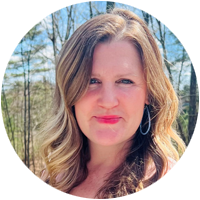
In her role as a behavioral insurance research lead at John Hancock, Ryen McGinn and her research team develop innovative strategies that incentivize healthier lifestyle behaviors, thereby reducing risk and promoting overall well-being among John Hancock Vitality policy holders. Her day-to-day work involves researching health and wellness trends, building partnerships in the health and wellness space, and bringing the latest wearable device technologies to members.
What made you interested in taking the Health and Wellness: Designing a Sustainable Nutrition Plan executive program from Harvard Medical School?
I first saw mention of the program as part of my research through work - I subscribe to various health and wellness resources, including Harvard Health Publishing. After my recent annual physical, my doctor informed me that my cholesterol levels were quite high. I thought I was eating well and exercising regularly, but I left the call feeling unsure about what specific changes I should make. So, I took it into my own hands, and when I saw the Health and Wellness: Designing a Sustainable Nutrition Plan program come up, I thought it would be a good chance to improve my nutrition but also bring the insights from the program back to my role. And that's exactly what I did.
Can you tell us more about our program experience?
I absolutely loved the program! From the very beginning, I was captivated by Professor Beth Frates. She is fantastic! I even had the opportunity to attend a “Food is Medicine” summit, where I spotted her across the room and mustered the courage to go say hi. She greeted me with warmth and a big hug, suggesting we take a picture together.
The program content was also impressive. It was easy to digest and understand, making it accessible for everyone. What I particularly appreciated was the combination of self-paced learning with deadlines. As someone who can procrastinate at times, having set assignments really helped keep me on track, unlike many courses that allow you to go at your own pace.
Have you applied any learnings to your work?
Yeah, definitely. In my role, I primarily focus on prevention and detection, as well as helping our members manage chronic conditions. Right now, I'm in the process of making a presentation for our 2025 strategy. Instead of concentrating solely on managing these conditions, I want to shift our focus to the six pillars of lifestyle medicine. I want to address issues proactively. For example, teaching our members what to eat to lower their cholesterol and what types of exercise can help reduce blood pressure. I really want to integrate these principles of lifestyle medicine into our program. This program provided me with the foundational skills to do that.
On a personal level, the self-reflection journal encouraged me to apply what I learned to my own life. For example, I was prompted to examine my pantry and identify five things I could change. These small, manageable steps helped me create healthier habits, not just for myself but for my kids as well. I realized that while I often bought snacks like Doritos, I could make a simple switch by having fresh fruits and vegetables ready for them after school. These incremental changes have significantly improved my health and helped me lose weight, which has been incredibly rewarding.
What kind of impact did the program have on you?
Going into the program, I don’t think I was expecting to use the information as much as I do. It has changed my outlook on nutrition and highlighted the importance of exercise in reducing my risk of chronic conditions. One of the most impactful aspects of the program was how it consistently connected nutrition to various health issues, like diabetes and heart disease. This clear link really drove home the significance of the six pillars of lifestyle medicine in mitigating the risk of illness.
Would you recommend the Health and Wellness: Designing a Sustainable Nutrition Plan program to others?
I’ve been telling my friends and family what a positive experience I had with the program. It was easy to follow, and I genuinely looked forward to each new module, eager to learn something fresh each week. I've also recommended the program internally at work, highlighting how it changed my whole view on nutrition.